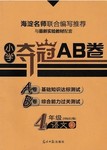题目内容
American cities are similar to other cities around the world: In every country, cities reflect(反映)the values of the culture. American cities are changing, just as American society is changing.
After World War Ⅱ, the population of most large American cities became smaller; however, the population shifts(转移)to and from the city reflect the changing values of American society. In the late 1940s and early 1950s, city residents(居民)became richer. They had more children so they needed more space. They moved out of their flats in the city to buy their own homes. They bought houses in the suburbs(郊区).
Now things are changing. The children of the people who left the cities in the 1950s are now adults. Many, unlike their parents, want to live in the cities. They continue to move to Sun Belt cities and older ones of the Northeast and Midwest. Many young people are moving back into the city. They prefer the city to the suburbs because their jobs are there; or they just enjoy the excitement and what the city offers.
This population shift is bringing problems as well as some advantages. Countless poor people must leave their flats in the city because the owners want to sell the buildings or make flats for sale instead of for rent(租金). In the 1950s, many poor people did not have enough money to move to the suburbs; now many of these same people do not have enough money to stay in the cities.
Only a few years ago, people thought that the older American cities were dying. Some city residents now see a bright, new future. Others see only problems. One thing is sure: many dying cities are alive again.
1.The main idea of the passage is _________.
|
A.cities around the world |
|
B.the dying cities |
|
C.the changing American cities |
|
D.the changing of the American culture |
2. Why did American city residents want to live in the suburbs after World War Ⅱ?
|
A.Because older American cities were dying. |
|
B.Because they were richer and needed more space. |
|
C.Because cities included the worst parts of society. |
|
D.Because they could hardly afford to live in the city. |
3. According to the 4th paragraph, a great many poor people in American cities _________.
|
A.are faced with housing problems |
|
B.are made to move to the suburbs |
|
C.want to sell their buildings |
|
D.need more money for daily costs |
4.We can know from the passage that _________.
|
A.American cities are changing for the worse |
|
B.the population is getting smaller in older American cities |
|
C.many people are now moving from American cities |
|
D.people have different views on American cities |
1.C
2.B
3.A
4.D
【解析】
试题分析:本文作者介绍了美国城市发展变化过程中的一些现象,就像任何国家一样,城市就是文化价值的一种反映.短文重点介绍了二战以后,美国城市变化的一些现象,特点.短文最后指出到现在人们对美国城市的认识还没有一个统一的观点.
1.通过阅读短文可知本文第一段及点明了本文的主旨,即介绍美国城市的变化,故选C.
2.根据In the late 1940s and early 1950s, city residents(居民)became richer. They had more children so they needed more space. They moved out of their flats in the city to buy their own homes.描述可知选B.
3.根据Countless poor people must leave their flats in the city because the owners want to sell the buildings or make flats for sale instead of for rent(租金).描述可知选A.
4.通过短文最后一段可知人们对于美国城市的观点有很多种,故选D.
考点:关于美国城市变迁的说明文
点评:这篇短文难度较大,有些内容需要根据相关内容总结,因此动手前要先细读短文,掌握题意后在动手解答问题。

 小学夺冠AB卷系列答案
小学夺冠AB卷系列答案 ABC考王全优卷系列答案
ABC考王全优卷系列答案Except for a few times, Americans are not big present-givers. There’s no exchange of presents among business people, and if one American tries to give another a present, it may look like that he wants to bribe (贿赂) him. Americans have learned that in some other countries people like to give presents to others, but among ourselves we don’t see the need for presents.
Even friends may never exchange presents. When I go to foreign countries, I try to bring back little things for close friends, but nobody would feel unhappy if I didn’t. I don’t often remember a friend’s birthday, and few people outside of my family remember mine. If someone gave me presents too often, I’d get unpleasant. But a present from a foreigner — that kind from his or her homeland — won’t go wrong, except to government employees (政府职员) who can’t be given presents.
You usually open a present at once and in front of the person who gives it except Christmas and birthday presents. You should only say, ‘It’s so nice. Thanks…’when you get Christmas or birthday presents.
You may want to bring a bottle of wine (葡萄酒) or flowers to a dinner party, but you’re never asked to. Nobody will mind if you bring wine, but your friend may not use it that evening.
At Christmas we often give presents to our family and sometimes our friends. We also give presents to people who have been helpful during the year like doormen, babysitters, housecleaners , newspaper senders — anyone who has often helped us.
【小题1】What do the underlined words ‘close friends’ mean in the passage?
| A.The friends who are very kind. |
| B.The friends who live close to each other. |
| C.The friends who were once classmates. |
| D.The friends who you like most. |
| A.The small presents. |
| B.Christmas or birthday presents. |
| C.The expensive presents. |
| D.The presents for dinner party. |
| A.To pay them. |
| B.To help them. |
| C.To thank them. |
| D.To make them work harder. |
| A.American business people don’t want presents because they are rich enough. |
| B.The writer of this passage must be an American. |
| C.Everyone must give presents to one’s family and friends at Christmas. |
| D.Government employees can get little presents from a foreigner. |
| A.Present-giving in the United States. |
| B.Customs (习俗) in the United States. |
| C.American people and present-giving. |
| D.When and how to give presents. |
If you often have a cold, headache or backache, there is something wrong with your health. Eating healthy food 43 good for our health. Tofu(豆腐), milk, vegetables are healthy for us.
Tofu is a kind of traditional(传统的) 44 food. We often 45 it in China. Now more and more people 46 other countries think tofu is good for health, 47 . They also like eating it.
Milk is 48 kind of healthy food. Every day you should 49 one or two glasses of milk. It can 50 us strong.
Vegetables are very important. You should eat 51 them. There are vitamin(维他命) A, B, C, D , E and so on in them.
As we know, it’s important 52 a balanced diet(均衡饮食). We must have the right kinds of food. We should also eat some pork, chicken and beef. We should eat more fruit and vegetables but less meat.
|
1. |
|
|
2. |
|
|
3. |
|
|
4. |
|
|
5. |
|
|
6. |
|
|
7. |
|
|
8. |
|
|
9. |
|
|
10. |
|
Kate lives in London with her parents. She is a schoolgirl. Today is Kate’s birthday and she’s fifteen years old. Her father’s name is Smith. He works in a hospital. People think he is a good doctor. Kate’s mother is a nurse. She is a very good nurse. Kate has two brothers and a sister, and they study in China. Her elder(大) brother speaks Chinese very well and has many friends there. He is a college (大学) student. But her younger brother and sister are middle-school students. Both of them are studying Chinese very hard and want to be teachers of Chinese in their country(国家).
1. Today Kate is _________________.
|
A.fifteen |
B.sixteen |
C.seventeen |
D.eighteen |
2.What is her father? ___________ .
|
A.A teacher |
B.A nurse |
C.A doctor |
D.A worker |
3.What do her younger brother and sister want to be?
|
A.Teachers of English |
B.Teachers of Chinese |
|
C.Teachers of maths |
D.Teachers of art |
4.Where does her elder brother have many friends? ____________.
A. In his country B. In the hospital C. In China D. In the USA.
5.Her younger brother and sister want to teach _______ people Chinese.
|
A.English |
B.American |
C.Chinese |
D.China |
Jenny and Gina are__.They come from__.
|
A.Americans;America |
B.America;American |
|
C.Americans;Africa |
D.American;American |